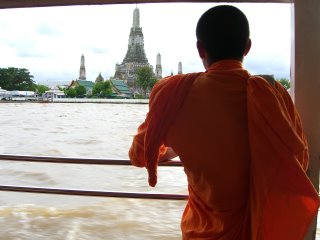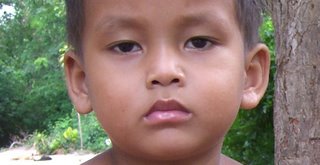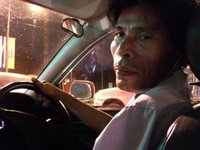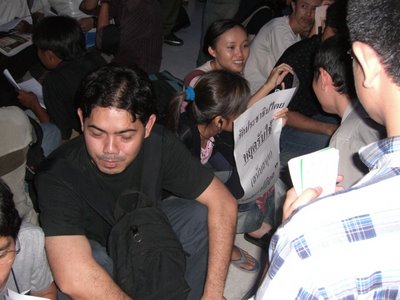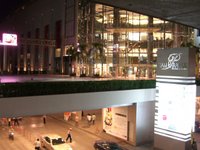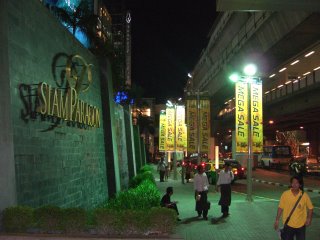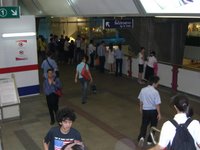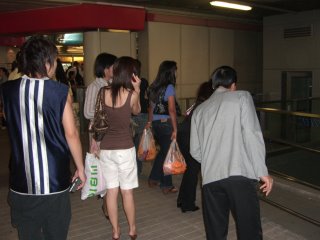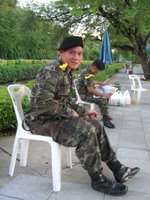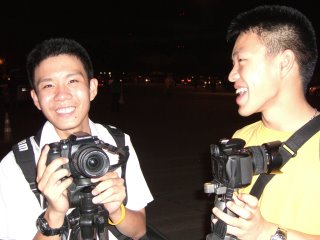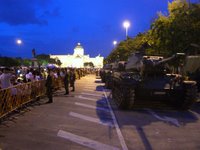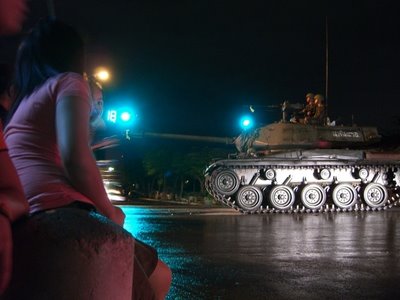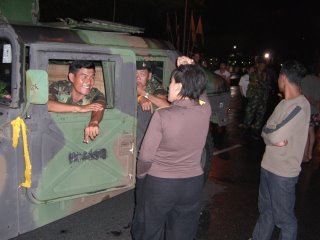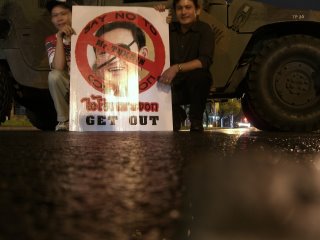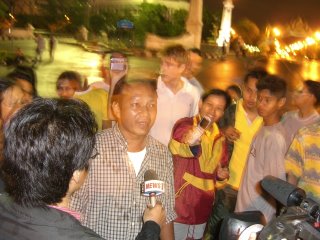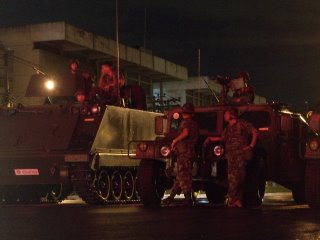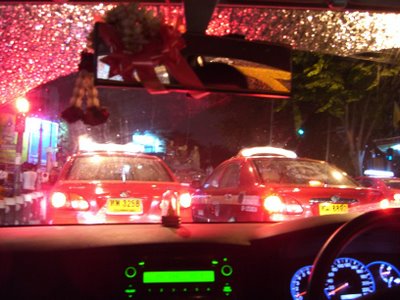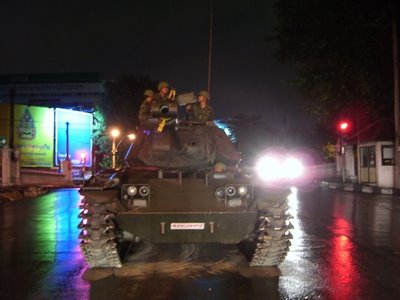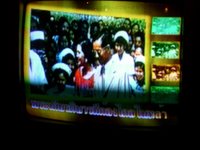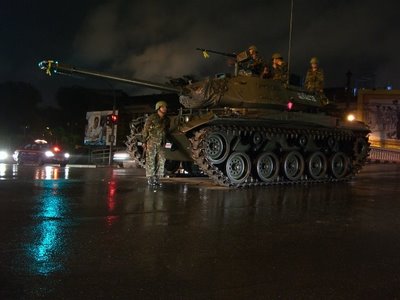Many Thais, including foreigners such as the former British Ambassador, have taken the junta at its word. They believe the junta is going to appoint a new government shortly that will set things right, and put an end to corruption, and restore "democratic rights." But as we have seen, so far the junta has taken away civil liberties enjoyed by the Thai people. My question is simply this: must the junta take away rights in order to restore them?
How to explain the restrictions on liberty introduced by the junta? The Thai papers have published polls showing that upwards of 80% of Thai people support the overthrow of the Thaksin regime. (As one commentator observed, if the poll was legitimate, certainly the coup was unneccessary because Thaksin would have lost the November election). Surely the junta must feel quite insecure, because they give the appearance of being a regime afraid of its own people.
This sense of insecurity may not be entirely reality-based. After all, the junta has the support of the king. And with the king's support, they ought not be acting so paranoid. Why not? Because the king enjoys the loyalty and trust of the vast majority of Thai people -- perhaps 95%, maybe more.
However, by snuffing out civil liberties -- for example, by forcing newspapers to publish bogus polls, the junta is slowly raising peoples' ire. The junta risks making itself look worse with every passing day. Photos of
tank-top clad girls dancing among their tanks may not be sufficient to win over the hearts and minds of Thais. Especially since over the past 16 years Thailand has changed. Today, Thais are
accustomed to liberty. The junta may well be its own worst enemy.
I am reminded of something I read last spring in an advance copy of an interesting book. This book was banned in Thailand because it is about the king
. Anyway, I recall that the author of the
The King Never Smiles, Paul M. Handley, made a point that could be
relevant to understanding the apparent insecurity of the junta. Historically, Handley suggests that king's inner circle may have succeeded at convincing the king that the intentions of Thailand's democracy agitators were somehow incompatible with the constitutional monarchy. Back in the 'seventies, military types among the king's inner-most circle may have blurred the distinction betweeen the democracy advocates and communists -- in the mind of the king, and perhaps their own minds as well. So the end effect may have been to make an otherwise secure king feel (needlessly) insecure.
But how to explain the possible persistance of paranoia -- or sense of insecurity --within the inner circle today? Perhaps they have convinced the king that his extremely high popularity among Thais is partly to be attributable to the success of anti-defamation laws against the monarchy? The Royalists' base is a hermetically sealed comfort zone -- that limited sphere of Thai society regarding which censorship has long been the norm. They may attribute their own power to the success of censorship, and so expand its reach today, thinking that this will help them to consolidate their power. I am inclined to doubt the premise that the censorship laws have played a significant role in making the king popular. I am inclined to believe this king would be loved by the Thai people without the shield of censorship laws. Of course, we will never know; and herein lies the problem with censorship: it creates doubts where none need exist.

